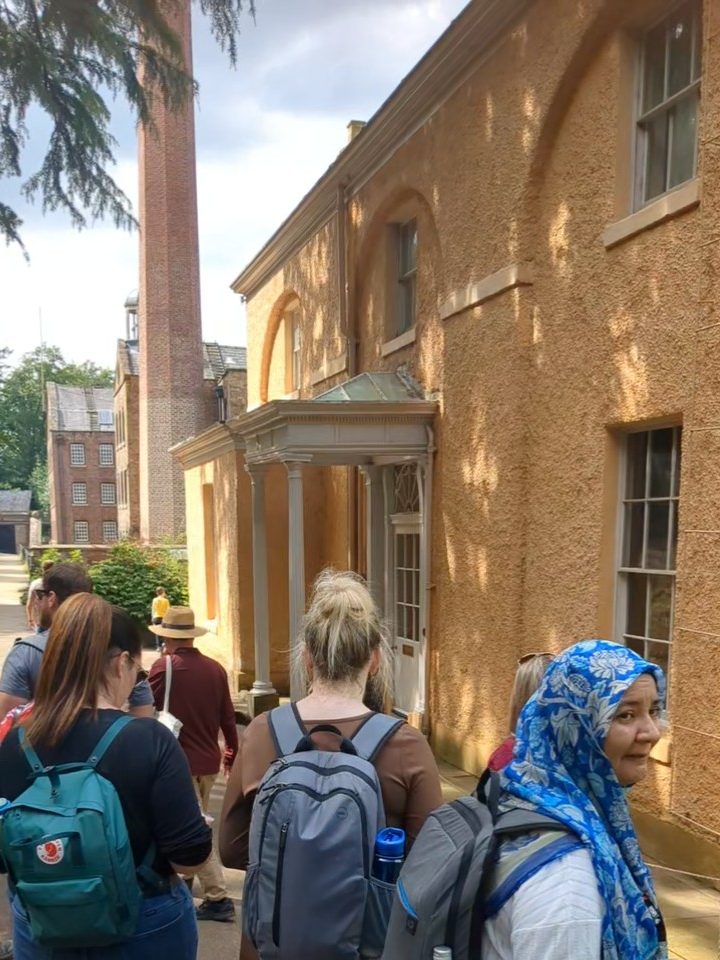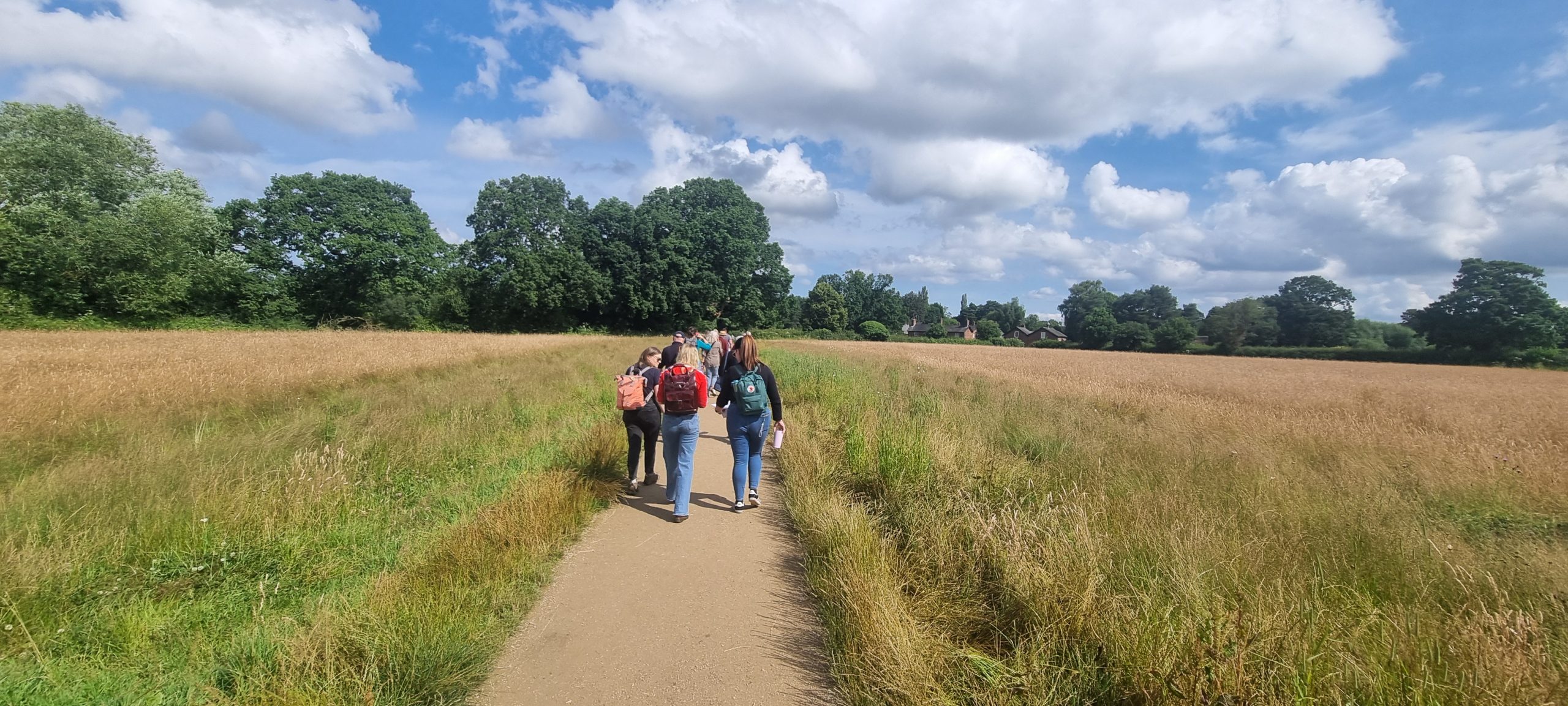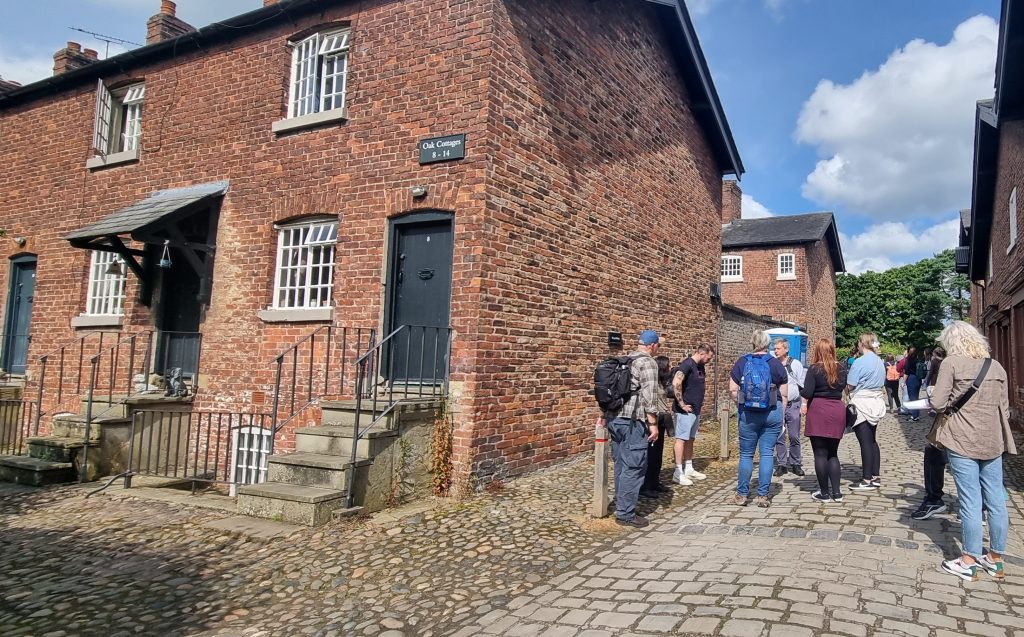On July 15th, 2024, our Public Health Practitioner degree apprentices embarked on a field trip to Quarry Bank Mill, Cheshire, UK. A historic site that offers a glimpse into the lives of mill workers during the Industrial Revolution. This trip was both educational and an opportunity for apprentices to apply their academic learning in a real-world context, focusing on the structural determinants of health and the harsh living conditions of the mill workers.
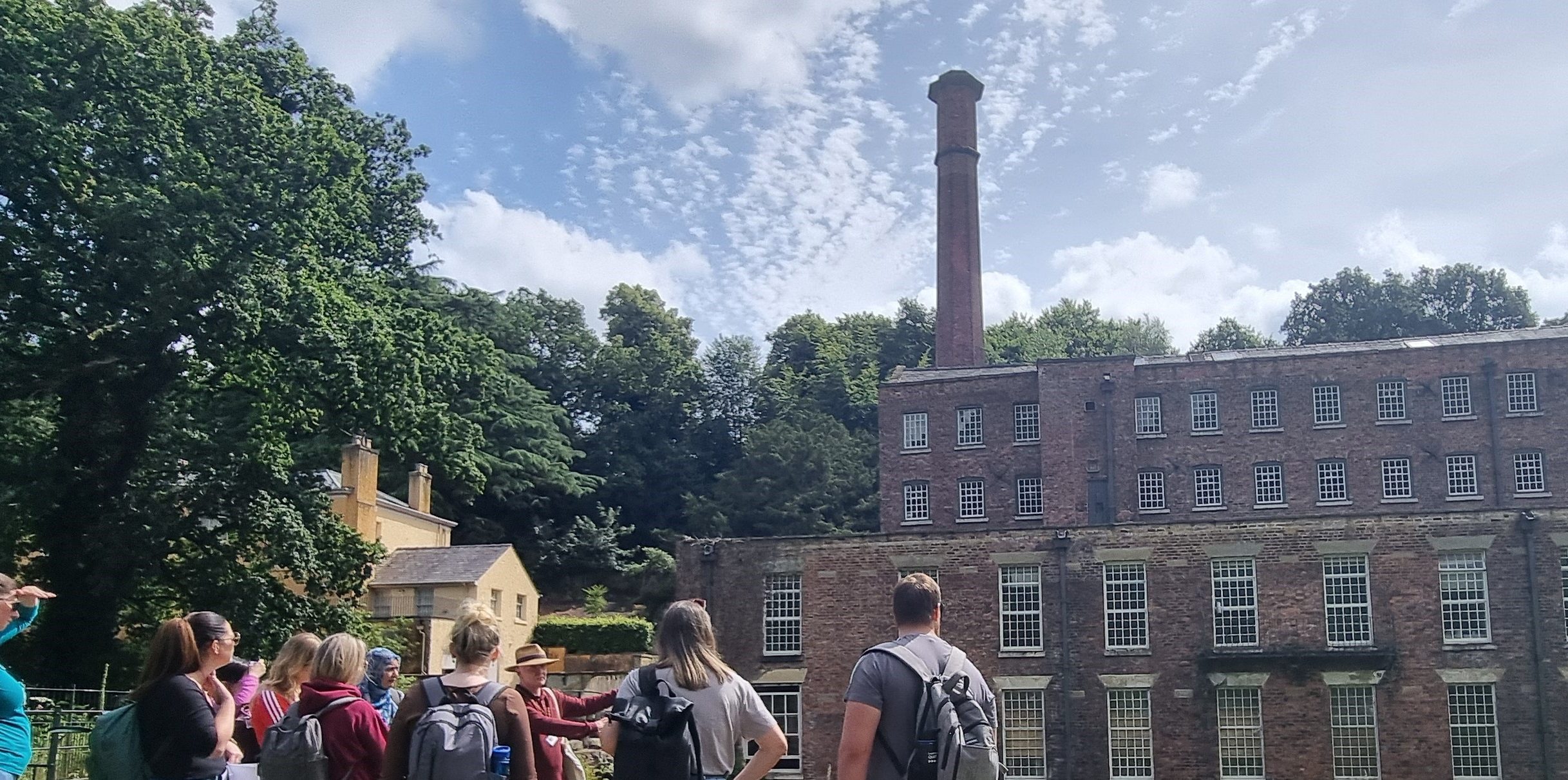
Before the field trip, learners were asked to fill out a brief questionnaire to identify any accessibility barriers, additional support needs, and relevant medical information. The risk assessment was then completed and shared with the learners prior to the trip.
The day began with a transect walk tracing the path that mill workers would have taken from their cottages to the mill. Apprentices were split into smaller groups and given their worksheets. This walk was designed to help students record data on the living environment of the mill workers, with a particular focus on the structural determinants of health and the potential health hazards. Then the groups were guided through the Mill, where they explored two floors featuring exhibitions on the lives and working conditions of the workers. This tour provided an immersive, sensory learning experience of the working conditions during the Industrial Revolution and the physical and mental toll it took on the workers.
Lunch and group work followed. Where apprentices worked in mixed-year groups. This activity was an opportunity for the apprentices to demonstrate teamwork skills. While some groups worked on their posters, others visited the records room to view historical archives, offering a hands-on experience with primary sources. The apprentices then presented their group posters, and the winners were awarded a prize for their efforts.
Finally, there was a tour of the Apprentice House, led by a National Trust staff in period costume. This tour provided a stark reminder of the terrible conditions faced by apprentices during the Industrial Revolution, offering a sobering reminder of how far we have come.
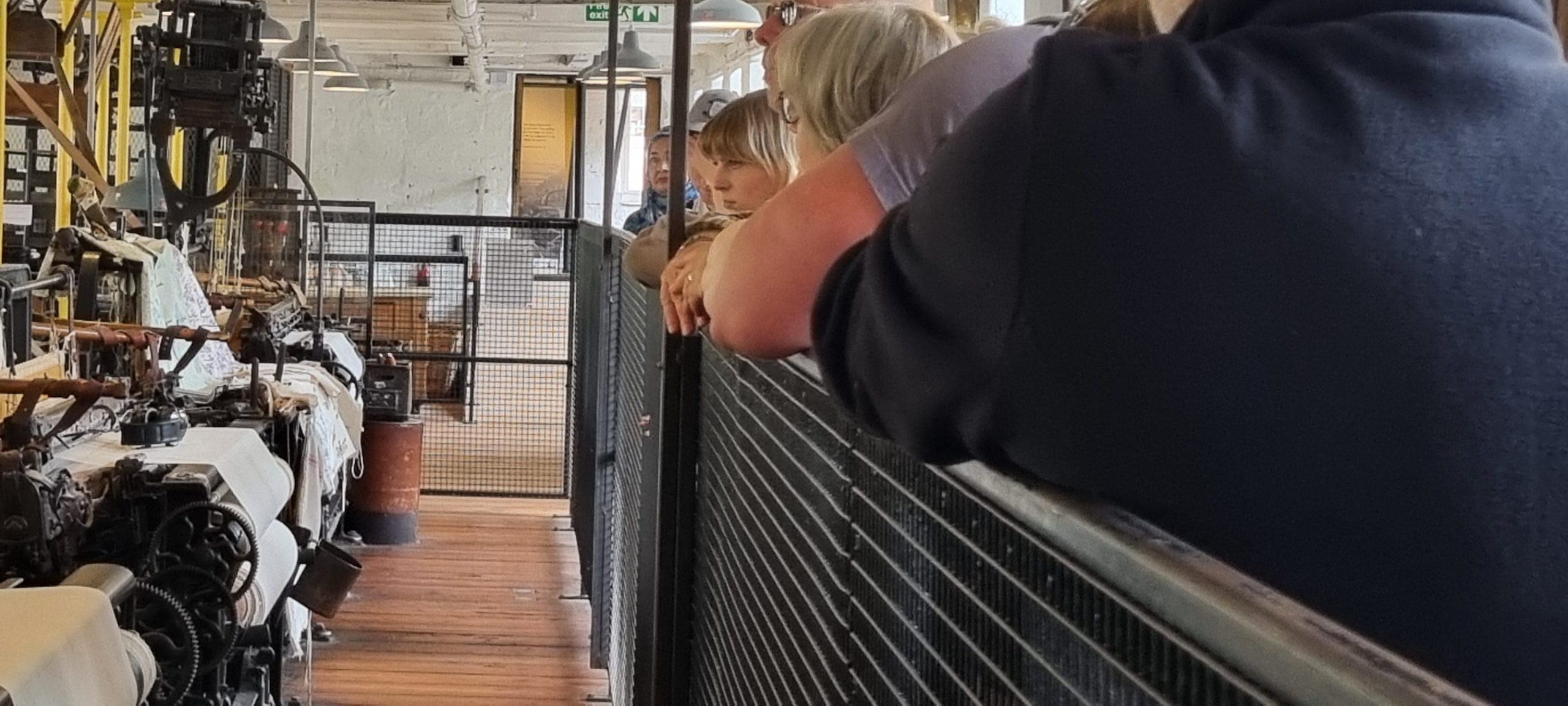
Feedback from the apprentices highlighted the success of the trip in enhancing their understanding of health hazard identification as well as the policy and legislation context. Many learners appreciated the balance between guided tours and hands-on activities, noting that the group work and connecting with other apprentices was one of the key aspects for them. It is hoped that the trip provided learners with a unique opportunity to connect their academic studies with the realities of the past, with a deeper understanding of the intersection between history, health, and social conditions.
